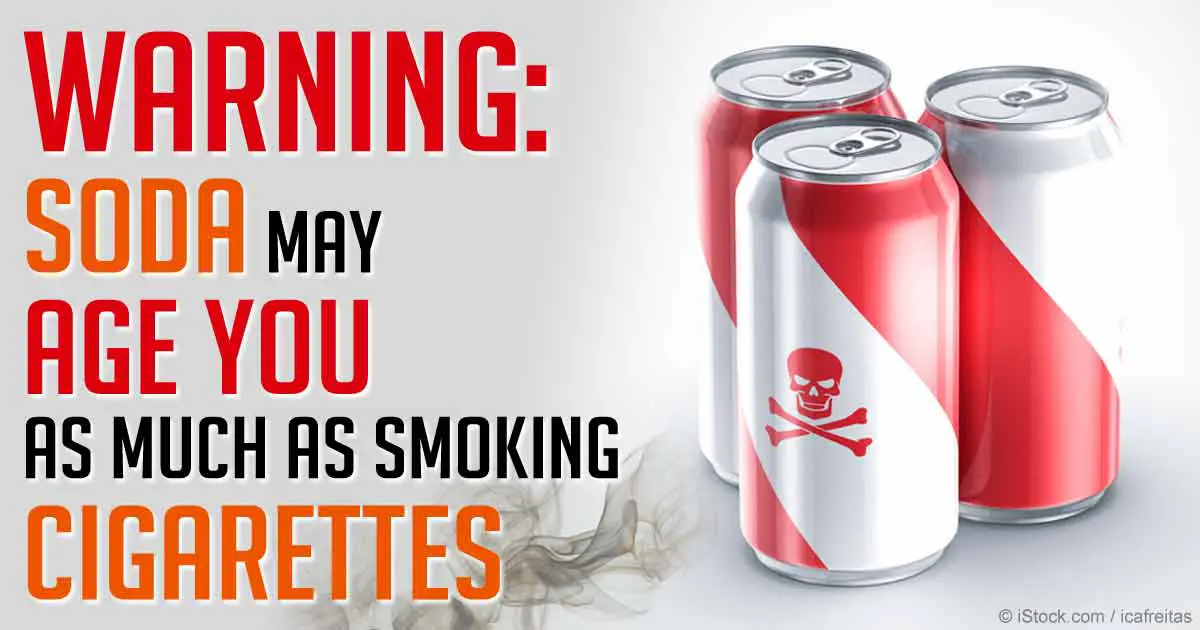Guest Writer for Wake Up World
A number of common chemicals are potent endocrine disruptors, meaning, they disrupt your hormone function. Endocrine disrupting chemicals (EDCs) are similar in structure to your natural sex hormones, such as estrogen.
These chemicals can potentially interfere with normal physiology, even in extremely small amounts. Your endocrine glands regulate vital physiological processes such as metabolism, reproduction, growth, and development.
A hormone’s job is to help regulate your cell’s function, sending signals that instruct them to perform certain tasks, but EDCs interfere with proper hormone signaling.
Endocrine disrupting chemicals, such as bisphenol-A (BPA), can mimic your natural hormones, tricking your body into increasing or decreasing hormone production or blocking hormone signals by binding to cell receptors. Therefore, compounds that interfere with these vital processes can produce profound effects.
Bisphenol-A (BPA) is one well-known endocrine disruptor, and according to recent research, a chain of events that occur probably millions of times each day across the US actually maximizes the harm done by these chemicals. As reported by Time Magazine:[1]
“According to a new study[2]… people who used hand sanitizer, touched a cash register receipt and then ate French fries were quickly exposed to high levels of bisphenol A (BPA), a chemical widely used to coat receipt paper.” [Emphasis mine]
Triclosan, Receipts, and Greasy Fingers Maximizes Chemical Exposure
All of these things: triclosan (the active ingredient in many hand sanitizers), bisphenols (both BPA and BPS), and vegetable oils are harmful to your health in isolation.
The featured research now shows that when combined, you create a situation in which your body absorbs the greatest amounts of toxin possible… First of all, absorption of BPA via your skin promotes higher levels of biologically active BPA in your body, compared to ingesting it via contaminated food.
“When scientists added in two other factors—scrubbing hands with hand sanitizer and eating greasy food—the evidence points to a super-sized dose of BPA,” Time Magazine notes.
’The chemicals used to make hand sanitizers, soaps, lotions, and sunscreen degrade the skin’s ability to act as a barrier and so act as skin penetration enhancers,’ says [study author] vom Saal.
So BPA enters the body more efficiently than it would otherwise. Food grease and other oils can act similarly because BPA itself is fat-soluble…”
Remarkably, absorption of BPA occurred in people holding a receipt for as little as TWO SECONDS! According to the author of the study, the amounts of BPA absorption found in his research “are in a zone where effects associated with obesity, diabetes, and neurological effects can result.”
Past research also suggests caution is warranted when handling receipts, even if you only hold them long enough to put them in your wallet. A 2010 study in Analytical and Bioanalytical Chemistry[3] found that of 13 thermal printing papers analyzed, 11 contained BPA.
In that study, holding the paper for five seconds was enough to transfer BPA to a person’s skin, and the amount of BPA transferred increased by about 10 times if their fingers were wet or greasy (such as if you’ve just applied lotion or eaten greasy food).
So far, laws have been passed in a dozen US states banning BPA from a variety of products, primarily products intended for children, such as baby bottles and sippy cups. Connecticut is the only state that has banned BPA in cash receipts.
Other Hazardous Chemicals in Fast Food Packaging
Another hazard associated with fast food relates to the packaging used. While American manufacturers have ceased using perchlorate and perfluorocarboxylates (PFCs) in non-stick food wrappers and take-out boxes, many restaurants are using imported boxes and wrappers.
These may still contain these hazardous chemicals. Research has shown that PFC’s can cause:[4][5]
- Infertility — PFOA and PFOS have been shown to dramatically increase the odds of infertility. In one 2009 study, PFOS increased the risk of infertility anywhere from 70 to 134 percent, while PFOA was linked to a 60 to 154 percent increase in the chance of infertility.
- Thyroid disease — Another study published in the journal Environmental Health Perspectives found that PFOA can damage your thyroid function. Individuals with the highest PFOA concentrations were more than twice as likely to report current thyroid disease, compared to those with the lowest PFOA concentrations.
- Cancer — PFOA has been associated with tumors in at least four different organs in animal tests (liver, pancreas, testicles, and mammary glands in rats), and has been associated with increases in prostate cancer in PFOA plant workers. The EPA has ruled PFCs as “likely carcinogens,” and has stated that PFOA “poses developmental and reproductive risks to humans.”
- Immune system problems — Several studies by scientists in Sweden indicate that PFCs have an adverse effect on your immune system. As described in the EWG report on PFCs, PFOA was found to decrease all immune cell subpopulations studied, in the thymus and spleen, and caused immunosupression.
- Increased LDL cholesterol levels – A study in the Archives of Pediatric & Adolescent Medicine found that children and teens with higher PFOA levels had higher levels of total cholesterol and LDL or “bad” cholesterol, while PFOS was associated with increased total cholesterol, including both LDL cholesterol and HDL or “good” cholesterol.
For more information on the studies linking PFCs with various health problems, please review the Environmental Working Groups extensive report[6] on this topic.
In response to concerns that PFCs are still reaching consumers via imported fast food packaging, a petition created by consumer and health groups was recently filed[7] with the Food and Drug Administration (FDA), requesting the agency pass regulations to “close this loophole and clearly ban the chemicals in food production.”
Soda Ages You as Much as Smoking, Researchers Claim
In related news, research published in the American Journal of Public Health[8] claims that drinking soda on a daily basis ages your immune cells to a degree similar to that of a daily smoking habit. To reach this conclusion, the researchers studied the effect of sugary sodas on human telomeres.
Every cell in your body contains a nucleus, and inside the nucleus are the chromosomes that contain your genes. The chromosome is made up of two “arms,” and each arm contains a single molecule DNA. A typical DNA molecule is about 100 million bases long. It’s curled up like a slinky, extending from one end of the chromosome to the other.
At the very tip of each arm of the chromosome is where you’ll find the telomere. Your telomeres shorten with time because they cannot replicate completely each time the cell divides. Hence, as you get older, your telomeres get shorter and shorter. As noted by Time Magazine:[9]
“Shorter telomeres have been linked to health detriments like shorter lifespans and more stress, cardiovascular disease, diabetes and cancer… [Study author Elissa Epel, PhD] and her team analyzed data from 5,309 adults in the National Health and Nutrition Examination Survey (NHANES) from about 14 years ago.
They found that people who drank more sugary soda tended to have shorter telomeres. Drinking an 8-ounce daily serving of soda corresponded to 1.9 years of additional aging, and drinking a daily 20-ounce serving was linked to 4.6 more years of aging.
The latter, the authors point out, is exactly the same association found between telomere length and smoking… ‘The extremely high dose of sugar that we can put into our body within seconds by drinking sugared beverages is uniquely toxic to metabolism,’ she says.”
The Not-So-Sweet Truth About Artificial Sweeteners
Another toxic hazard inherent with processed foods is artificial sweeteners,[10] which I’ve discussed in many previous articles. Most recently, a study published in the journal Nature[11] concluded that artificial sweeteners induce glucose intolerance by altering the microbial balance in your gut. This in turn raises your risk for diabetes. Other studies have found similar results, raising serious questions about the wisdom of recommending artificial sweeteners for diabetics.
One 2012 study published in PLOS One[12] found that chronic lifetime exposure to aspartame, commencing in utero, produces changes in blood glucose parameters in mice. The researchers used a dosage of aspartame that approximates the allowable daily intake (ADI) for aspartame in the US (approx. 50 mg/kg body weight). Not only was aspartame found to decrease insulin sensitivity compared to controls, it also wrought havoc on brain function.
As I’ve mentioned on countless occasions, optimizing your insulin sensitivity is key for optimal health, as insulin resistance is a hallmark of virtually every chronic disease you can think of, but especially type 2 diabetes. Now, contrary to popular belief, aspartame is being revealed as a substance that actually decreases or worsens insulin sensitivity, which is the complete opposite of what you want—especially if you’re already pre-diabetic or diabetic!
Male mice fed aspartame also experienced significantly higher weight gain compared to the control group, whereas female weight gain was unaffected by the aspartame diet compared to controls. Still, deposits of visceral fat—those dangerous fat deposits around internal organs, which are associated with an increased risk of heart disease in humans—increased in aspartame-fed mice of both sexes. Aspartame-fed mice of both sexes also had elevated fasting blood glucose levels compared to non-consumers of aspartame. Another study published in 2007 in the journal Diabetes Care[13] reported similar results.
The fact that aspartame can alter your microbial balance has also been demonstrated in previous studies. One such study published in the journal Clinical and Experimental Rheumatology[14] revealed a potential link between aspartame and irritable bowel syndrome (IBS). Sucralose (Splenda), which is associated with many of the same adverse effects as aspartame, has also been found to decimate your gut flora. In fact, research published in the Journal of Toxicology and Environmental Health[15] in 2008 found that Splenda reduces the amount of good bacteria in your intestines by 50 percent!
Fast Food Trans Fats Replaced with Even More Hazardous Varieties
Last but not least, I want to address the issue of fast food grease, which maximizes absorption of BPA through your hands and fingers—especially if you also use hand sanitizers… As you may know, last November the FDA announced[16] it was considering removing partially hydrogenated oils—the primary source of trans fats—from the list of “generally recognized as safe” (GRAS) ingredients. This is a great step in the right direction, but unfortunately it appears the food industry has simply replaced one hazardous fat with an even greater hazard…
As explained by investigative journalist Nina Teicholz, author of The Big Fat Surprise: Why Butter, Meat, and Cheese Belong in a Healthy Diet, while trans fats are being recognized as harmful and are in the process of being eliminated, we’re still faced with a huge problem because restaurants are reverting back to using regular vegetable oils (such as peanut, corn, and soy oil) for frying, and these oils degrade into toxic oxidation products when heated. In Norway, one research group is trying to assess the effects on worker health in restaurants, but, as Nina notes:
“[These volatile compounds] are very hard to study because… they’re very unstable. They’re hard to isolate. One thing they did was simply to show that these products exist. There’s a whole category called aldehydes, which are particularly worrisome. A group doing research on animals have found that at fairly low levels of exposure, these aldehydes in animals caused tremendous inflammation, which is related to heart disease. They oxidized LDL cholesterol, which is thought to be the LDL cholesterol that becomes dangerous. There’s a link to heart disease. There’s also some evidence that links these aldehydes in particular to Alzheimer’s. They seem to have a very severe effect on the body.”
One researcher has found that cyclic aldehydes cause toxic shock in animals through gastric damage. We now know a lot more about the role your gut plays in your health, and the idea that aldehydes from heated vegetable oils can damage your gastric system is consistent with the rise we see in immune problems and gastrointestinal-related diseases.
“When the FDA got rid of trans fats… restaurants began to use these regular liquid oils instead… they were the cheapest possible option to use… The FDA really did not consider any of this literature about these oxidation products. When you implement a law, you’re supposed to look at the risks. What will happen if you implement a new regulation? In this case, the FDA did not,” Nina says.
Tips to Help You Avoid Toxic Chemicals
We live in a toxic world, and you clearly cannot steer clear of all chemical hazards. However, you can limit or minimize your exposure. As demonstrated in the featured study, safety cannot be ascertained by studying a chemical in isolation, as combinations of chemicals can dramatically increase their absorption and biological effects…
In the case of BPA, you have the combination of hand sanitizer stripping your skin and allowing for greater permeation; followed by touching a BPA-containing receipt and greasy food. This combo of triclosan, BPA, and grease, leads to maximum absorption of the BPA, which is known to cause harm in minute amounts… There are countless other chemicals to beware of as well. To minimize your exposure to some of the most well-researched toxins, consider implementing the following suggestions:
- Buy and eat fresh, organic produce and grass-pastured, sustainably raised meats to reduce your exposure to added hormones, pesticides, and fertilizers. Also avoid milk and other dairy products that contain the genetically engineered recombinant bovine growth hormone (rBGH or rBST).
- Eat mostly fresh, raw whole foods. Processed and packaged foods are a common source of chemicals such as BPA and phthalates.
- Rather than eating conventional or farm-raised fish, which are often heavily contaminated with PCBs and mercury, supplement with a high-quality krill oil, or eat fish that is wild-caught and lab tested for purity, such as wild caught Alaskan salmon.
- Consider skipping the receipt, as most thermal receipts contain BPA.
- Buy products that come in glass bottles rather than plastic or cans, as chemicals can leach out of plastics (and plastic can linings), into the contents; be aware that even “BPA-free” plastics typically leach other endocrine-disrupting chemicals that are just as bad as BPA.
- Store your food and beverages in glass, rather than plastic, and avoid using plastic wrap.
- Use glass baby bottles for your infants.
- Replace your non-stick pots and pans with ceramic or glass cookware.
- Filter your tap water for both drinking and bathing. If you can only afford to do one, filtering your bathing water may be more important, as your skin absorbs contaminants. To remove the endocrine disrupting herbicide Atrazine, make sure your filter is certified to remove it. According to the EWG, perchlorate can be filtered out using a reverse osmosis filter.
- Look for products that are made by companies that are Earth-friendly, animal-friendly, sustainable, certified organic, and GMO-free. This applies to everything from food and personal care products to building materials, carpeting, paint, baby items, furniture, mattresses, and more.
- Use a vacuum cleaner with a HEPA filter to remove contaminated house dust.
- When buying new products such as furniture, mattresses, or carpet padding, ask what type of flame retardant it contains. Avoid items containing PBDEs, antimony, formaldehyde, boric acid, and other brominated chemicals. As you remove toxic items from in and around your home, replace them with those that contain naturally less flammable materials, such as leather, wool, cotton, and silk.
- Avoid stain- and water-resistant clothing, furniture, and carpets to avoid perfluorinated chemicals (PFCs).
- Make sure your baby’s toys are BPA- and BPS-free, such as pacifiers, teething rings and anything your child may be prone to suck or chew on. Better yet, avoid all plastic, especially flexible ones, as even BPA-free products are loaded with other plasticizers that are just as bad if not worse than BPA.
- Use natural cleaning products, or make your own. Avoid those that contain 2-butoxyethanol (EGBE) and methoxydiglycol (DEGME)—two toxic glycol ethers that can impair your fertility and cause fetal harm.[17]
- Switch over to organic toiletries, including shampoo, toothpaste, antiperspirants, and cosmetics. EWG’s Skin Deep database[18] can help you find personal care products that are free of phthalates and other potentially dangerous chemicals.
- Replace your vinyl shower curtain with a fabric one.
- Replace feminine hygiene products (tampons and sanitary pads) with safer alternatives.
- Look for fragrance-free products. One artificial fragrance can contain hundreds—even thousands—of potentially toxic chemicals. Avoid fabric softeners and dryer sheets, which contain a mishmash of synthetic chemicals and fragrances.
Article References
- [1] Time October 22, 2014, DOI: 10.1371/journal.pone.0110509
- [2]PLOS One October 22, 2014
- [3] Analytical and Bioanalytical Chemistry July 11, 2010: 398(1); 571-576
- [4] National Collaborating Centre for Environmental Health October 2010, Potential human health effects of perfluorinated chemicals (PFCs) (PDF)
- [5] Environmental Working Group, PFC Health Concerns
- [6] EWG’s Guide to Perfluorochemicals
- [7] Washington Post October 16, 2014
- [8] American Journal of Public Health June 21, 2014 [Epub ahead of print]
- [9] Time October 17, 2014
- [10] Science News October 1, 2014
- [11] Nature October 9, 2014: 514; 181-186
- [12] PLoS ONE April 3, 2012: 7(4): e31570
- [13] Diabetes Care July 2007; 30(7e59)
- [14] Clinical and Experimental Rheumatology July 4, 2012 [Epub ahead of print]
- [15] Journal of Toxicology and Environmental Health Part A 2008;71(21):1415-29
- [16] Federal Register November 8, 2013
- [17] EWG October 28, 2013
- [18] EWG Skin Deep
Previous articles by Dr. Mercola
- How Sugar Harms Your Brain Health and Drives Alzheimer’s Epidemic
- Analysis Confirms Chemicals in Food Are More Hazardous in Combination
- The Health Benefits of Intermittent Fasting
- Top 10 Destructive Nutrition Lies Ever Told
- Sleep Loss May Cause Brain Damage and Accelerate Onset of Alzheimer’s, Two New Studies Show
- Can a Hug a Day Keep Infection Away?
- 11 Vegetables Anyone Can Grow At Home
- How Ten Minutes of Exercise Yields Hour Long Effects
- The Fluoride Deception Continues as US Government Ignores Fluoride’s Role as an Endocrine Disruptor
- Magnesium: An Invisible Deficiency That Could Be Harming Your Health
About the author:
Born and raised in the inner city of Chicago, IL, Dr. Joseph Mercola is an osteopathic physician trained in both traditional and natural medicine. Board-certified in family medicine, Dr. Mercola served as the chairman of the family medicine department at St. Alexius Medical Center for five years, and in 2012 was granted fellowship status by the American College of Nutrition (ACN).
While in practice in the late 80s, Dr. Mercola realized the drugs he was prescribing to chronically ill patients were not working. By the early 90s, he began exploring the world of natural medicine, and soon changed the way he practiced medicine.
In 1997 Dr. Mercola founded www.Mercola.com, which is now routinely among the top 10 health sites on the internet. His passion is to transform the traditional medical paradigm in the United States. “The existing medical establishment is responsible for killing and permanently injuring millions of Americans… You want practical health solutions without the hype, and that’s what I offer.”
Visit www.Mercola.com for more information, or read Dr. Mercola’s full bio and resume here.

If you've found value in our articles, we invite you to support the release of our brand-new book, "Gratitude Practices for Kids: A Practical Guide for Adults to Instill a Spirit of Appreciation and Positivity in the Next Generation."
"Gratitude Practices for Kids" brings together over 25 innovative and accessible practices designed to enhance gratitude in everyday life. This comprehensive guide is backed by 17 scientific studies, ensuring each concept is grounded in research, underscoring our commitment to nurturing growth, emotional intelligence, and positive interactions between adults and children.
We encourage you to opt for the paperback version to celebrate this new release. Dive into its fresh pages away from digital distractions, allowing you to immerse yourself in the transformative practices it offers.
Over recent years, Wake Up World has faced significant online censorship, which has impacted our financial ability to operate. Moving into book publishing represents a strategic step to secure the ongoing funds needed to continue our mission. By purchasing Gratitude for Kids, you help us keep our content free and accessible to everyone, avoiding needing a paywall. With over 8,500 articles published in the last 13 years, we remain dedicated to keeping our valuable content open to all.









